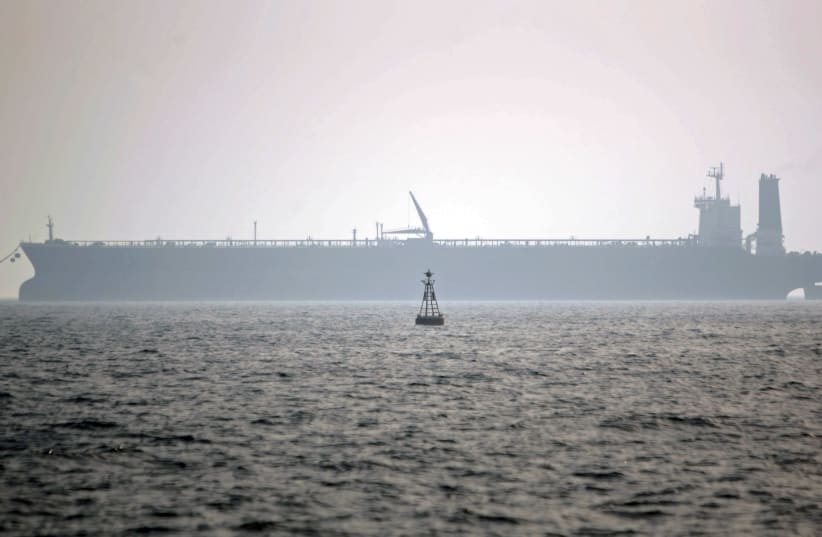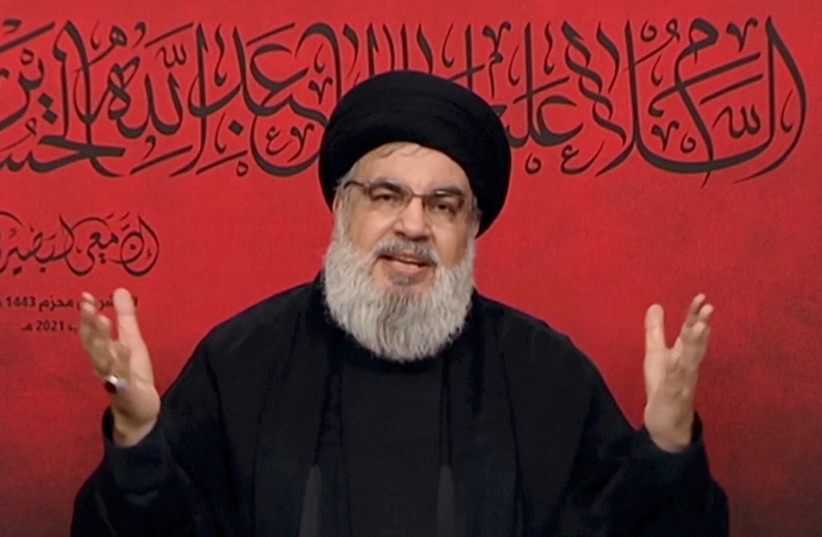Hezbollah Secretary-General Hassan Nasrallah announced on Monday that the first ship of Iranian oil intended for Lebanon arrived at the Baniyas port in Syria on Sunday, after Hezbollah decided to have the ship dock there instead of Lebanon.
The ship was recently identified as the FAXON by Tanker Trackers, a ship monitoring service.
Nasrallah said the decision was made to have the ship dock in Baniyas in order "not to cause embarrassment to the Lebanese government." The Syrian government secured trucks for transporting the oil to Lebanon, according to Nasrallah.
The oil is expected to arrive in the Beqaa valley area starting on Thursday and will be distributed to the rest of Lebanon from there afterwards.
Nasrallah stressed that the ships safely arrived, despite concerns by some that Israel would not allow the oil to reach Lebanon. "Some bet that Israel would not allow the ships to reach Lebanon, but they missed that the Israeli was in trouble," said Nasrallah. "The existing deterrence equation in Lebanon and the introduction of ships to Lebanon within this equation allowed the arrival of the first ship and the incoming ships as well."
In August, Nasrallah had warned Israel and the US that "from the moment the Iranian ship sails, [Hezbollah] will consider it Lebanese territory." The first ship, he said at the time, would carry diesel fuel since that is currently the top priority.
The Hezbollah leader warned at the time against challenging his organization on the matter, saying the issue has "become linked to the pride of our people, and we refuse to humiliate this people."
A second ship will arrive in Baniyas in the next few days, Nasrallah said on Monday, followed by a third ship in the future.
"Our goal is not trade or profit, but rather to help alleviate the suffering of people, and our goal is not to compete with companies importing oil derivatives," added the Hezbollah leader.
Nasrallah has warned on multiple occasions that Hezbollah would import Iranian oil on its own if the Lebanese government did not. Iranian oil is subsumed under international sanctions. Such a move could bring Iranian fuel tankers close to Israel’s shores.
In August, Nasrallah suggested that the next Lebanese government pursue drilling for oil and gas off of Lebanon's coast, stressing that Hezbollah could bring an Iranian company to drill, if necessary.
The Hezbollah leader offered to help drill for oil and gas in the waters of Lebanon's coast, saying that if no companies are willing to do so due to fears of US sanctions or Israeli strikes, the terrorist group could bring an Iranian company to drill. Nasrallah added that drilling for oil and gas in Lebanon's waters would rid the country of the need to import fuel.
Nasrallah's announcement in August about the Iranian oil came as tensions ran high between Israel and Iran after a series of Iranian attacks against commercial vessels, including an Iranian drone strike against the Israeli-managed Mercer Street tanker off the coast of Oman in July, killing a British and Romanian citizen.
In March, The Wall Street Journal reported that Israel had attacked a dozen Iranian oil tankers headed for Syria. Hezbollah-affiliated operative Ali Shoeib tweeted last week that there was now a new equation with Israel: “a tank for a tank,” an apparent warning to Israel not to attack tankers carrying Iranian oil to Lebanon.
In the speech on Monday evening, Nasrallah also referred to the recent escape of six Palestinian prisoners from Gilboa Prison, saying that the escape "involved a lot of creativity, courage and work."
"The implications of the operation are great, and the most important thing in it is the Palestinian insistence on freedom and liberation despite all the circumstances he has been experiencing over the years," said Nasrallah.
The Hezbollah leader added that the recapture of four of the prisoners "does not diminish the success of the operation" and that all Palestinians are responsible for keeping the remaining two out of prison.

